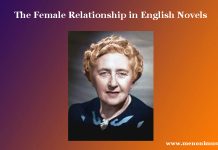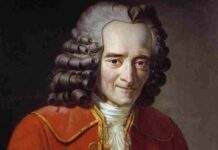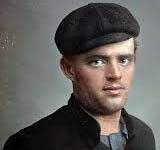J Conrad | Heart of Darkness | Characterization of Marlow
or
Role of Marlow in the Novel ‘Heart o Darkness’
or
Ideological Position of Marlow in the Novel ‘Heart of Darkness’
J Conrad | Heart of Darkness | Characterization of Marlow
J Conrad | Heart of Darkness | Characterization of Marlow
Marlow is one of the major characters in the novel entitled ‘Heart of Darkness’ by Joseph Conrad (1847-1924). Throughout the novel, he plays the ideological roles of a narrator, philosopher and psychologist. We can illustrate his multi-faced ideological roles below:
First, Marlow plays the role of an exceptionally gifted narrator in the novel. He narrates the story of the novel in his own person. Thus he becomes the mouthpiece of the novelist, Joseph Conrad. As a narrator, Marlow possesses extraordinary power of observation, perception, reflection, meditation and analysis. In narrating the story of the Congo Expeditions, Marlow makes a unique blend of realism and imagination. But whatever he narrates he becomes ideological in his narration. The following lines show us how realistic, imaginative, vivid and even poetic he is as a narrator:
”Trees, trees, millions of trees, massive, immense, running up high at their foot, hugging the bank against the stream….”
Secondly, Marlow plays the role of a philosopher. He spends much time in meditating upon what he observes. For instance, he experiences a feeling of futility on seeing a French warship firing its guns into the jungle purposelessly. He also experiences a sense of futility on seeing that rock is being blasted. The sight of the six black natives chained to one another having iron collars on their necks also arouses in Marlow a series of philosophical reflections. Besides these, Marlow’s reflections on hunger and on cannibalism show his philosophical blend of mind. ‘Hunger’ he points out, is one of the most compulsive cravings of mankind. In addition to these, Marlow’s comments on human life and on the action and natures of the persons he goes into contact with are philosophical. For instance, he says, “We live as we dream alone”. Marlow’s comments on the brick-maker as a “Piper Mache Mephistopheles”; his comment on Kurtz as “hollow at the core”; his comment on the Russian as ‘harlequin’- all are philosophical in nature.
Thirdly, Marlow plays an important role as an ideological psychologist also. As a psychologist, Marlow is able to judge the inside of human beings and probe the workings of their minds. Marlow makes the following comments:
”The mind of man is capable of anything because everything is in it- all the past as well as all the present.”
Marlow’s analyses and comments on the characters of the novel are philosophical and at the same time psychological. His analyses of the character of the Russian, the Brick-maker and the white traders, and especially of Kurtz are philosophical. Marlow says, “All Europe contributed to the making of Kurtz”- which is not only philosophical but also psychological because it reveals the mind of Kurtz. In some context, Marlow gives a bit of self-analysis when he tells his listeners about his hatred of falsehood as:
”There is a taint of death, a flavour of mortality in lies-which is exactly what I hate and detest in the world.”
Thus Marlow throughout the novel plays the roles of a narrator, of a philosopher, and of a psychologist. But all his roles are ideological because the account of the Congo Expedition and the description and the analyses of the characters that he goes into contact with during this expedition are based less upon Conrad’s real tour to that land but more upon his ideas about that land and people. Besides this, the novelist has portrayed Marlow as an ideal man in the light of religion and spiritual faith. We see at the beginning of the novel that Marlow sat crossed-legged on the decks of the stream boat with the appearance of an ascetic-like Asian Buddha. There is no evil in him. Neither is he tainted by the commercialism and greed of the Whites. He does not at any time stoop to any kind of meanness and baseness. His comments on various persons with whom he comes into contact show his sound moral thinking and wholesome moral principles. Hence Marlow’s ideological roles in the novel are unique and extraordinary. 0 0 0
J Conrad | Heart of Darkness | Characterization of Marlow
Read More: The Theme of George Eliot’s Novel ‘Middlemarch’
J Conrad | Heart of Darkness | Characterization of Marlow
N. B. This article entitled ‘J Conrad | Heart of Darkness | Characterization of Marlow’ originally belongs to the book ‘World Novel Criticism‘ by Menonim Menonimus. J Conrad | Heart of Darkness | Characterization of Marlow
Books of Literary Criticism by M. Menonimus:
- World Short Story Criticism
- World Poetry Criticism
- World Drama Criticism
- World Novel Criticism
- World Essay Criticism
- Indian English Poetry Criticism
- Indian English Poets and Poetry Chief Features
- Emily Dickinson’s Poetry-A Thematic Study
- Walt Whitman’s Poetry-A Thematic Study
- Critical Essays on English Poetry
- Tawfiq al-Hakim’s Novel: Return of the Spirit-An Analytical Study
- Tawfiq al-Hakim’s Novel: ‘Yawmiyyat Naib Fil Arayaf’-An Analytical Study
- Analytical Studies of Some Arabic Short Stories
- A Brief History of Arabic Literature: Pre-Islamic Period …
Related Searches:
- Heart of Darkness
- Heart of Darkness: Marlow
- ‘Middlemarch’ Themes
- ‘Middlemarch’ Themes-Course Hero











